In New Jersey, THCA (Tetrahydrocannabinolic Acid), a non-psychoactive cannabinoid found in raw cannabis, has gained attention due to its potential health benefits, including anti-inflammatory, neuroprotective, and anxiolytic properties. As of early 2023, THCA is legally recognized for medical use under the state's medical marijuana program, where patients with qualifying conditions can access it, and for recreational use, though regulations dictate its purchase through state-sanctioned dispensaries as the market for adult-use cannabis evolves. The legal status of THCA in New Jersey has opened up opportunities for research and the development of cannabis-based treatments that avoid the psychoactive effects of THC. Consumers interested in THCA's potential benefits should adhere to state regulations, start with low doses, and source products responsibly from credible dispensaries. The state's legislation has positioned New Jersey as a key player in the cannabis market, particularly for THCA, which is now legally available and widely researched within its borders.
Discover the transformative potential of THCA (Tetrahydrocannabinolic Acid), a non-psychoactive compound found in cannabis that’s gaining attention for its promising health benefits. As the conversation around cannabinoids evolves, New Jersey emerges as a focal point with its progressive stance on THCA’s legal status. This article delves into the myriad aspects of THCA flower, from its legal standings to scientific underpinnings, and provides a comprehensive guide for both novices and seasoned users in New Jersey. Join us as we explore the benefits of THCA, its unique properties compared to other cannabinoids, and the best practices for incorporating it into your wellness routine. Whether you’re interested in its potential therapeutic applications or curious about its legal status across the United States, this article will equip you with a wealth of knowledge.
- Unlocking THCA's Potential: A Deep Dive into Its Benefits
- THCA Flower Legal Status in New Jersey: What You Need to Know
- The Science Behind THCA and Its Health Implications
- How THCA Differs from Other Cannabinoids: A Comparative Analysis
- Experiencing THCA: Effects and Usage Guidelines for First-Timers
- THCA Flower in New Jersey: Availability and Consumption Methods
Unlocking THCA's Potential: A Deep Dive into Its Benefits
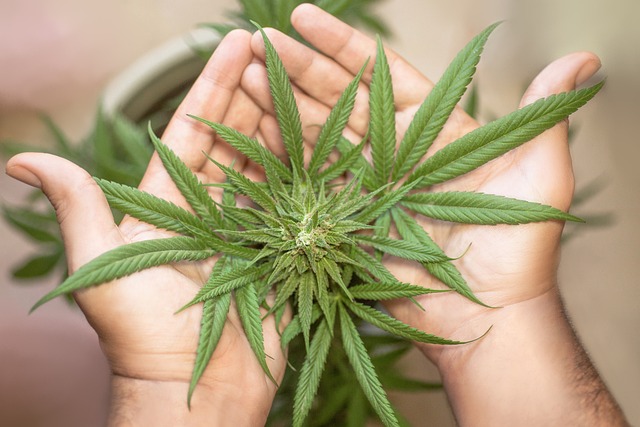
Unlocking THCA’s Potential begins with understanding its chemical structure and the various states it can exist in. Tetrahydrocannabinolic acid (THCA) is the raw, natural form of cannabis that contains the cannabinoid tetrahydrocannabinol (THC), which is well-known for its psychoactive properties once heated or decarboxylated. However, in its acidic form, THCA exhibits distinct benefits and potential therapeutic properties without the psychoactive effects. As research continues to unfold, many are looking into the advantages of THCA for various health conditions. In New Jersey, where the legal landscape has evolved to embrace cannabis for medicinal and adult-use purposes, THCA flower is gaining attention for its potential wellness benefits. This interest is rooted in anecdotal evidence and preliminary scientific studies that suggest THCA may offer anti-inflammatory, neuroprotective, and antiemetic properties. Advocates for natural remedies and holistic health practices are particularly interested in the benefits of THCA, noting its potential to alleviate symptoms associated with chronic pain, inflammation, and certain neurological disorders. As such, the exploration into THCA’s potential is a significant area of interest within the cannabis community, particularly in regions like New Jersey where legal access to different cannabinoid forms is expanding.
THCA Flower Legal Status in New Jersey: What You Need to Know
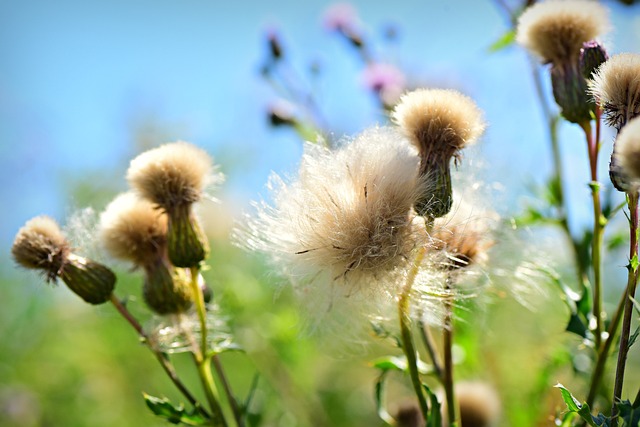
In recent years, the legal landscape surrounding cannabinoids like THCA (Tetrahydrocannabinolic Acid) has evolved significantly. As of my knowledge cutoff in early 2023, New Jersey has established a clear stance on the legality of THCA flowers. Under the state’s medical marijuana program, patients with qualifying conditions can legally access THCA flowers and other cannabis products that are high in CBD (cannabidiol) and low in THC (Tetrahydrocannabinol). This program is designed to provide relief for those suffering from various ailments where cannabis has shown therapeutic benefits. For recreational use, however, the situation is different. While New Jersey has legalized adult-use cannabis, the sale and possession of cannabis in an unprocessed form, including THCA flowers, are still subject to strict regulations. The state has set a timeline for full recreational use, but until that point, consumers must adhere to medical marijuana program guidelines or await the completion of legislative processes. It’s crucial for individuals interested in THCA flowers to stay updated with New Jersey’s evolving cannabis laws, as the legal status can change with new legislation or regulatory updates. Those looking to legally purchase THCA flowers in New Jersey should ensure they are doing so within the confines of medical marijuana dispensaries and in accordance with state regulations.
The Science Behind THCA and Its Health Implications
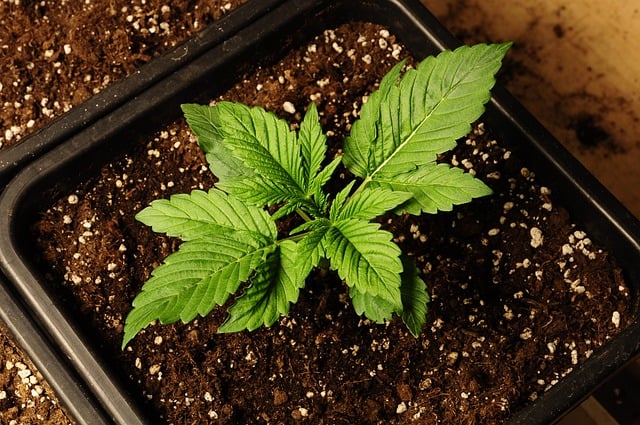
Delta-9-tetrahydrocannabinol (THC) is well-known for its psychoactive effects, but before it reaches this form, there is another cannabinoid that has garnered attention for its potential health benefits: tetrahydrocannabinolic acid A (THCA). THCA is the raw, non-psychoactive precursor to THC and is found in significant quantities in raw cannabis plants. Research suggests that THCA interacts with the body’s endocannabinoid system through its affinity for both CB1 and CB2 receptors, which may contribute to a variety of therapeutic properties, including anti-inflammatory, anti-nausea, appetite stimulation, and neuroprotective effects.
In New Jersey, where the legal landscape around cannabis is evolving, THCA has been the subject of growing interest. Legislation such as the New Jersey Cannabis Legalization Act reflects a shift towards recognizing the potential benefits of cannabinoids like THCA. As studies continue to explore the science behind THCA, preliminary findings indicate that it may offer therapeutic effects without the psychoactive ‘high’ associated with its decarboxylated form, THC. This could open up new avenues for cannabis-based treatments and health applications, particularly where psychoactivity is a concern or where THC itself is less effective. As such, THCA’s legal status in New Jersey positions it as a promising area of research within the state’s expanding medical cannabis program.
How THCA Differs from Other Cannabinoids: A Comparative Analysis
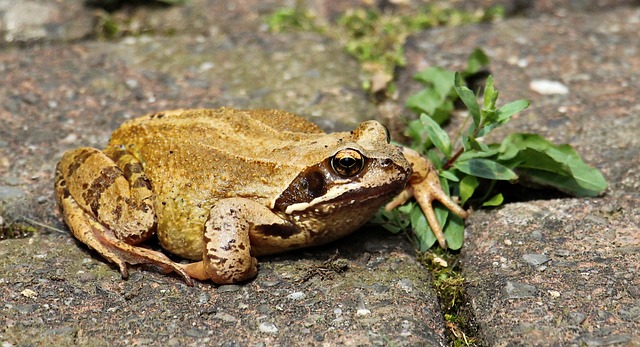
Tetrahydrocannabinolic acid A (THCA) is a non-psychoactive precursor to the well-known cannabinoid tetrahydrocannabinol (THC), which holds a distinct position in the cannabis plant’s chemical composition. Unlike THC, which is psychoactive and legally regulated, THCA is found naturally in raw or uncured cannabis flowers and is legal in states with medical or adult-use cannabis laws, such as New Jersey. The legal status of THCA in New Jersey allows for research and exploration into its potential health benefits without the psychotropic effects associated with THC.
Through a process known as decarboxylation, which typically occurs during the curing and heating processes, THCA converts to THC. This conversion alters the compounds’ effects and interactions within the body’s endocannabinoid system. Research suggests that THCA may offer anti-inflammatory, neuroprotective, and analgesic properties without the psychoactive high associated with its counterpart THC. This distinguishes THCA as a potentially valuable therapeutic compound for individuals seeking relief from certain conditions without mind-altering effects. When considering the entourage effect, the synergistic interaction between cannabinoids and terpenes in cannabis, the unique benefits of THCA become even more apparent. Its presence in full-spectrum CBD products may enhance the therapeutic effects, offering a broader range of benefits for users in compliance with state regulations like those in New Jersey.
Experiencing THCA: Effects and Usage Guidelines for First-Timers

THCA, or tetrahydrocannabinolic acid, is the raw form of THC found in cannabis plants and has garnered attention for its potential therapeutic properties. As legislative frameworks evolve, such as its status being thca legal in New Jersey, consumers are increasingly exploring its benefits. For those experiencing THCA for the first time, it’s important to understand its effects and proper usage guidelines. Unlike its psychoactive counterpart, delta-9 THC, THCA typically doesn’t induce intoxication but is believed to possess anti-inflammatory, neuroprotective, and anxiolytic properties. Users may experience a sense of relaxation and pain relief without the mind-altering effects that characterize high-THC cannabis.
To ensure a safe and effective experience, first-timers should start with a low dose to gauge individual sensitivity. THCA can be consumed in various forms, including raw cannabis, edibles, capsules, and concentrates. When using raw flower, it’s advisable to consume small amounts, as the effects may be delayed due to how the body metabolizes THCA into THC over time. The legality of THCA-rich products varies by state, with New Jersey being one of the states where such products are permissible under certain conditions. It’s crucial to adhere to local regulations and always purchase from reputable sources to ensure product quality and safety.
THCA Flower in New Jersey: Availability and Consumption Methods
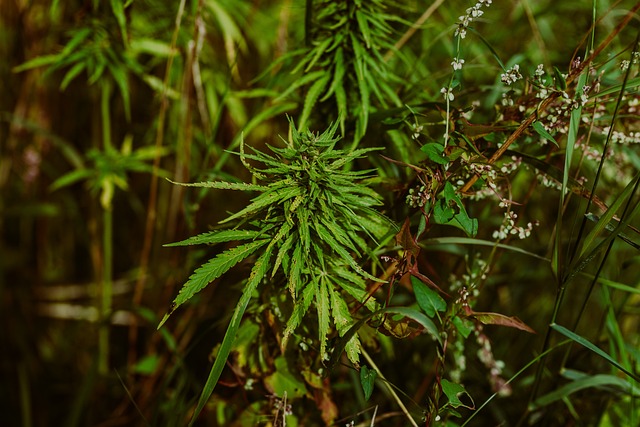
In recent years, the conversation surrounding cannabinoids and their potential health benefits has gained significant traction. Among these, THCA (Tetrahydrocannabinolic Acid) has emerged as a subject of interest due to its unique properties, which some claim may offer therapeutic effects without the psychoactive effects associated with its counterpart, THC (Tetrahydrocannabinol). As of the latest regulations, THCA is legal in New Jersey for both medicinal and adult-use consumption under the state’s recreational cannabis laws. This has opened up new avenues for consumers to explore the potential benefits of THCA flower, a form of raw cannabis that contains the acidic precursor to THC.
The availability of THCA flower in New Jersey has increased with the legalization of adult-use cannabis. Consumers in the state can now find this product in various dispensaries, often labeled as “smokable flower” or specifically as THCA flower. The consumption methods for THCA flower are diverse and cater to different preferences. Some choose to consume it by smoking it in a similar fashion to traditional cannabis flowers, while others opt for preparing it as tea or incorporating it into edibles after decarboxylating it to activate the THC. The latter method can be particularly appealing for those seeking the potential therapeutic benefits of cannabinoids without the psychoactive effects typically associated with cannabis consumption. As interest in the wellness properties of cannabinoids like THCA continues to rise, New Jersey’s market is likely to evolve further, offering a wider array of products and consumption methods to meet the demands of an expanding consumer base.
THCA, or tetrahydrocannabinolic acid, presents a promising frontier in the realm of wellness and health, with its potential benefits only recently coming to light. As explored in this article, understanding THCA’s legal status, particularly in New Jersey, is crucial for those interested in exploring its advantages. The science underscores its distinct effects compared to other cannabinoids, offering a unique option for individuals seeking alternatives to traditional treatments. For residents of New Jersey looking to include THCA flower in their wellness routine, it’s important to be informed about its legal standing and how to use it effectively. In summary, THCA’s emergence as a legal option in New Jersey marks an exciting development for those intrigued by its potential health benefits.
